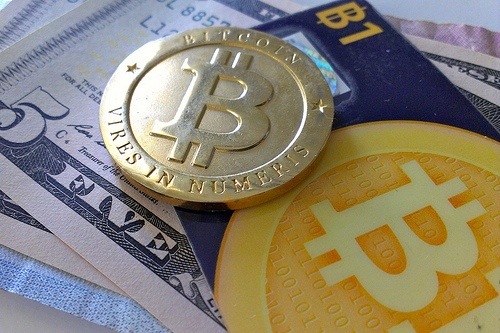
If you’ve been following the news online, it’s unlikely that you’ve made it all the way to the end of this week and not heard the word ‘Bitcoin’ in one context or another. This week, on the heels of the first Congressional hearing into the digital currency, the value of Bitcoin broke the symbolic $1,000 mark for the first time (according to MTGox). I’ve written a brief introduction to Bitcoin before.
But, in amongst various press reports in which journalists continue to peddle the usual scare stories of bubbles being formed now as in days gone by in relation to such commodities as gold, land and tulips – and not entirely without justification I should add – I still think that the real significance of Bitcoin has again been for the most part entirely ignored.
I understand that the price volatility makes a good story. After all, who doesn’t like to hear such cautionary tales of modern-day foolishness as the one involving the guy whose hard drive containing $4 million in bitcoin is now buried somewhere in a Newport landfill site and no doubt continuing to appreciate in value.
But for me, Bitcoin isn’t simply an opportunity for us to gamble on making a quick buck by risking everything under the pretence of somehow being able to predict its future movements. It is far more important than that.
As Mike Hearn said earlier this week in a quote that I shared on Google+:
“It’s easy to forget that Bitcoin’s true value is not in an arbitrary exchange rate, but in its ability to enable new applications and services which aren’t possible with today’s payment networks.”
There’s a very important post by Albert Wenger of Union Square Ventures (‘Bitcoin As Protocol’) that sets this out far more eloquently than I can. In essence, Bitcoin has the potential act as the foundation upon which a whole range of significant innovations can be built over the coming years. As Albert points out, in the same way as a car driver doesn’t need to know how the car engine works – or a web surfer doesn’t need to understand how HTTP works – the important thing to take on board is that the introduction of an electronic public record of every financial transaction (in the form of the blockchain) in itself presents all manner of new possibilities.
It’s likely that the adoption of digital currency will lead to the creation of a whole new ecosystem for commerce and innovations in existing processes which has not only the potential to be significantly more efficient but importantly also lets us do things as a society that just aren’t currently possible.
If you’re with me so far, please do take a look at the talk that Mike Hearn gave at the Turing Festival earlier this year to get a sense of where this could lead in the next 50 years – truly mind-bending stuff:
http://www.youtube.com/watch?v=Pu4PAMFPo5Y&sns=em
Of course, I don’t know if it will be Bitcoin that wins the race. There are a range of other competing digital currencies that are vying for supremacy. But in my view there’s no doubt that we will reach that tipping point one day when a digital currency will be generally accepted (and not just by Edinburgh’s First Bitcoin Taxi, as I discovered this week). The potential benefits are just too good to be ignored. So please don’t fall for any of the red herrings around the unstable value, the facilitation of illegal activities or any similar superficialities. This is going to be far, far bigger.

Papa Djabs Scottish Hot Sauce has been accepting Bitcoin since 2011. Made in Edinburgh.
chilli-recipes.blogspot.co.uk/
Very interesting guys, hadn’t come across you before – thanks for letting me know! There are many more examples than this obviously but together with http://www.edinburghbitcointaxi.com/ and yesterday’s story (http://www.dailyrecord.co.uk/news/scottish-news/scots-cafe-becomes-first-accept-3015672), I’m pretty convinced Bitcoin is going to have a breakthrough year in 2014.